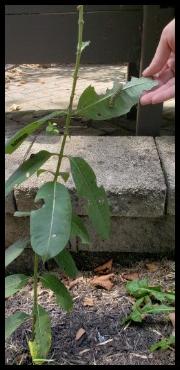Sustainability Task Force Update (Nov. 13, 2018)
Wittenberg recently switched from Waste Management to Rumpke for our recycling services across campus and this change, as well as national and international market trends, have led to some changes in what can and cannot be recycled in terms of plastics. Rumpke will only take 1 & 2 plastics that are in a bottle-like shape. So, if you have plastics that have a resin identification code of 3-7, please note that these cannot be recycled in our area at this time. Resin codes are typically located on the bottoms of plastic items.
STF members realize that the fact that 3-7 plastics are not being recycled can be frustrating, but it is fairly standard across the recycling industry to only recycle 1 & 2 plastics. If you are concerned about the amount of waste that is created by plastics that cannot be recycled in your area, you can 1) reduce or stop purchasing these products, 2) encourage the businesses that use them to consider alternatives to single use plastics, or 3) talk to your government representatives about this issue.
In September STF met with representatives from Asulion, a company doing large and small solar projects. Their most recent project in higher education was at Kenyon College. STF is interested in pursuing alternative energy options and is currently seeking ways to raise funds for such a project.
Our composting program, run by Parkhurst Dining Services, continues. Over the course of the last three pick-ups, Wittenberg kept 4700 pounds of food waste out of the landfill. Go Zero Services (the vendor who picks up our food waste) recently commented that “Wittenberg is one of our best examples of how to get the job done with minimal contamination.” Congrats to Parkhurst on keeping our system running smoothly!
 The native plants in our campus pollinator garden bloomed and have now gone to seed in preparation for the coming colder months. Dr. Burgett’s biology class collected seeds in the hope that Wittenberg can start to grow some of these native species in our campus greenhouse and then plant them in other areas on campus. Earlier in the fall semester the class found two monarch caterpillars munching on the milkweed planted in the garden. (see photo below) Creating habitats for monarchs and other pollinators is one of our goals for using native plants on campus, so we were thrilled to see an early sign of success.
The native plants in our campus pollinator garden bloomed and have now gone to seed in preparation for the coming colder months. Dr. Burgett’s biology class collected seeds in the hope that Wittenberg can start to grow some of these native species in our campus greenhouse and then plant them in other areas on campus. Earlier in the fall semester the class found two monarch caterpillars munching on the milkweed planted in the garden. (see photo below) Creating habitats for monarchs and other pollinators is one of our goals for using native plants on campus, so we were thrilled to see an early sign of success.As the HWA construction continues, STF wanted to share that Wittenberg is pursuing a Green Globes certification for the project. Click here to find out more about Green Globes.
If you are interested in financially supporting sustainability efforts at Wittenberg, please do! You can donate to Green Wittenberg / Wittenberg Sustainability on our giving page. If you are a faculty or staff member and would like your donation to be deducted by our payroll office you can fill out this form - you will need to print, fill out “Wittenberg Sustainability” in the “Other” category in the gift information section, and then the payroll deduction information. Please send your completed form to the Wittenberg Fund via campus mail.

